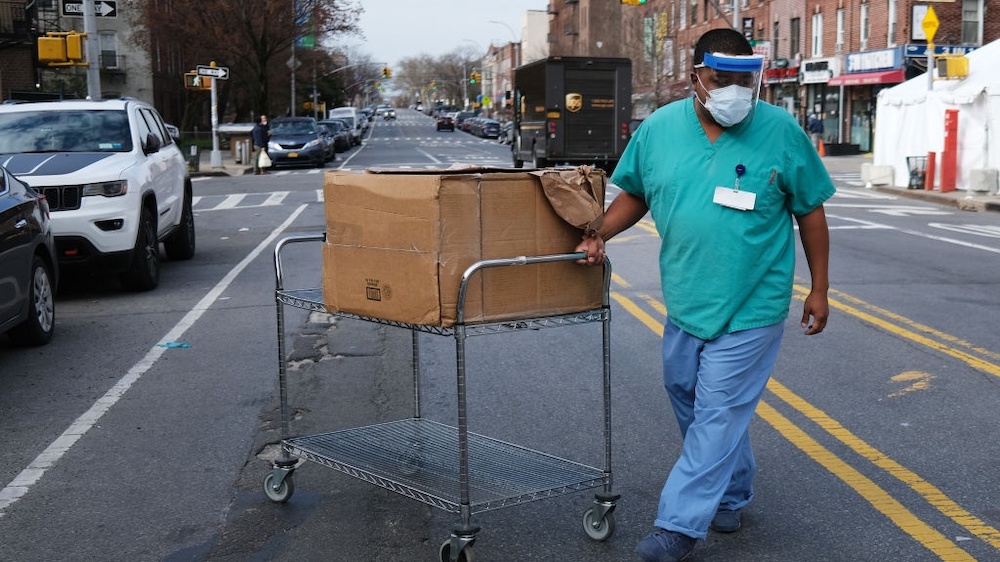If you’re interested in sharing your opinion on any cultural, political or personal topic, create an account here and check out our how-to post to learn more.
____
Riding my bicycle one recent balmy evening, I watched my neighbors emerge from their homes to take part in the weekly clapping, banging of pots and cacophony of honking horns to honor essential workers who put themselves at risk to help the rest of us amidst the COVID-19 pandemic. I joined in, frantically ringing my bicycle bell. As my usually reserved neighbors smiled and waved, my spirits lifted at the neighborly good cheer and community spirit — a rare bright spot in what has felt like the summer of doom and gloom.
As I cycled away though, it occurred to me how ineffective clapping is in actually supporting essential workers. These people who take on the greatest risks in their jobs are also some of the least protected and poorly paid. A study of working conditions for essential workers found that over half do not feel safe at work, with many unable to practice social distancing. Another study found essential workers were more likely to earn less than non-essential workers, with over half earning less than $20 an hour. We can and should do more to support these workers both financially and to ensure that they are safe.
The economic status quo treats essential workers as expendable even as we depend on them for our food supply, healthcare and safety. Chicken processing plants, for example, have been linked to large outbreaks of COVID-19 because employers failed to adopt safety protocols and prioritize the health of their workers. Plants closed as virus cases inevitably spiked. The failure to protect these workers is not only cruel, but hurts the economy.
During the Great Recession and its aftermath, we avoided total disaster but never changed the status quo. We held onto the illusion that a booming stock market, healthy corporate profits and a low unemployment rate equaled a thriving economy. But we missed important markers of economic health like worker protections, living wages and access to health care — much less recognizing the dignity of labor. All work, no matter how menial, is valuable and deserves our respect.
The pandemic crisis gives us an opportunity to re-imagine an economy that aligns with these values. To start, we need to measure success by what matters most: compensating workers fairly and keeping them safe.
There’s a narrative that only high-status jobs like those in Wall Street are valuable; yet Wall Street was responsible for nearly destroying the economy just over a decade ago. How sustainable is an economy full of financial wizards or tech geniuses without the farm workers who secure our food supply or the health care workers who care for us when we are sick?
Improving the working conditions and take-home pay of workers has other less obvious benefits. If all work has value, workers can choose careers based on their passions and not just on what pays the bills. The economy is more productive when people can reach their full potential.
For many millennials, including me, following our passion was never an option. We deferred, often indefinitely, markers of adulthood like home ownership, marriage or simply getting off the family cell phone plan. Not factoring our downward mobility meant important changes to policy were never made.
My generation was still playing catch up after the false recovery of the last crisis when this one hit and erased the meager gains we’d made. Let’s not waste this opportunity to make the economy work better — and in turn, to prevent the next one. It’s time for a clear vision for an economy that starts by valuing people’s true worth and compensating them for it.
